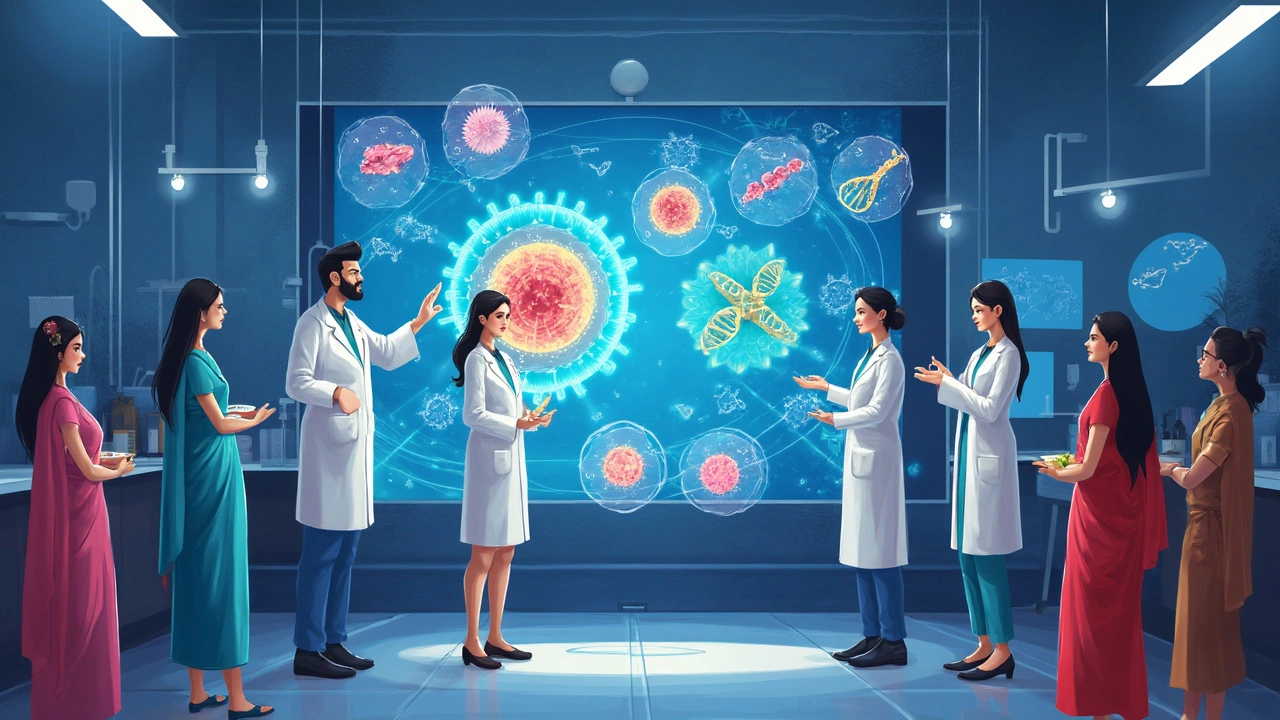Tumor Suppression: Basics, Key Players, and Real‑World Impact
When talking about tumor suppression, the set of natural processes that keep abnormal cell growth in check. Also known as cancer inhibition, it relies on a network of proteins that monitor DNA, control the cell cycle, and trigger self‑destruction when needed.
One of the most critical components are tumor suppressor genes, genes that produce proteins to stop cells from turning malignant. The flagship of this group is p53, often called the "guardian of the genome" because it decides whether a damaged cell should repair or die. Another vital partner is apoptosis, the programmed cell death pathway that wipes out cells that could become cancerous. Finally, DNA repair mechanisms detect and fix genetic errors before they trigger uncontrolled growth keep the genome stable and support overall tumor suppression. Together, these entities form a safety net: tumor suppressor genes sense stress, activate apoptosis, and call in DNA repair to restore order.
Why Tumor Suppression Matters for Health and Treatment
Understanding how tumor suppression works helps explain why some cancers are curable while others are aggressive. For example, patients with functional p53 often respond better to chemotherapy because the drug‑induced DNA damage can still trigger apoptosis. In contrast, loss of key tumor suppressor genes can lead to rapid tumor progression, which is why articles on stage 4 cancer survival and cancer patient life expectancy frequently mention the status of these genes. Modern therapies, from targeted inhibitors to immunotherapy, aim to restore or mimic tumor suppression pathways, turning a weak defense into a powerful weapon against disease. So whether you’re reading about the most painful cancer treatments or the latest breakthroughs in cancer care, the underlying theme is the same: boosting the body’s natural tumor‑suppressing systems can improve outcomes and quality of life.
Below you’ll find a curated selection of articles that dive deeper into these topics—covering everything from why certain drugs work, to real‑world survivor stories, to the science behind DNA repair and apoptosis. Use this collection to see how tumor suppression ties into everyday health decisions and cutting‑edge medical research.

What Stops Cancer Cells from Growing? Real Barriers and Breakthroughs
What exactly stops cancer cells from multiplying out of control? This article breaks down the main reasons cancer cells fail to keep growing, from immune system attacks to new targeted drugs. You'll learn about everyday things that influence cell growth, plus real strategies doctors use to block and slow tumors. The role of genes, diet, and lifestyle is way bigger than most people think. Expect a no-fuss look at why stopping cancer is tough—and what actually works.
read more



